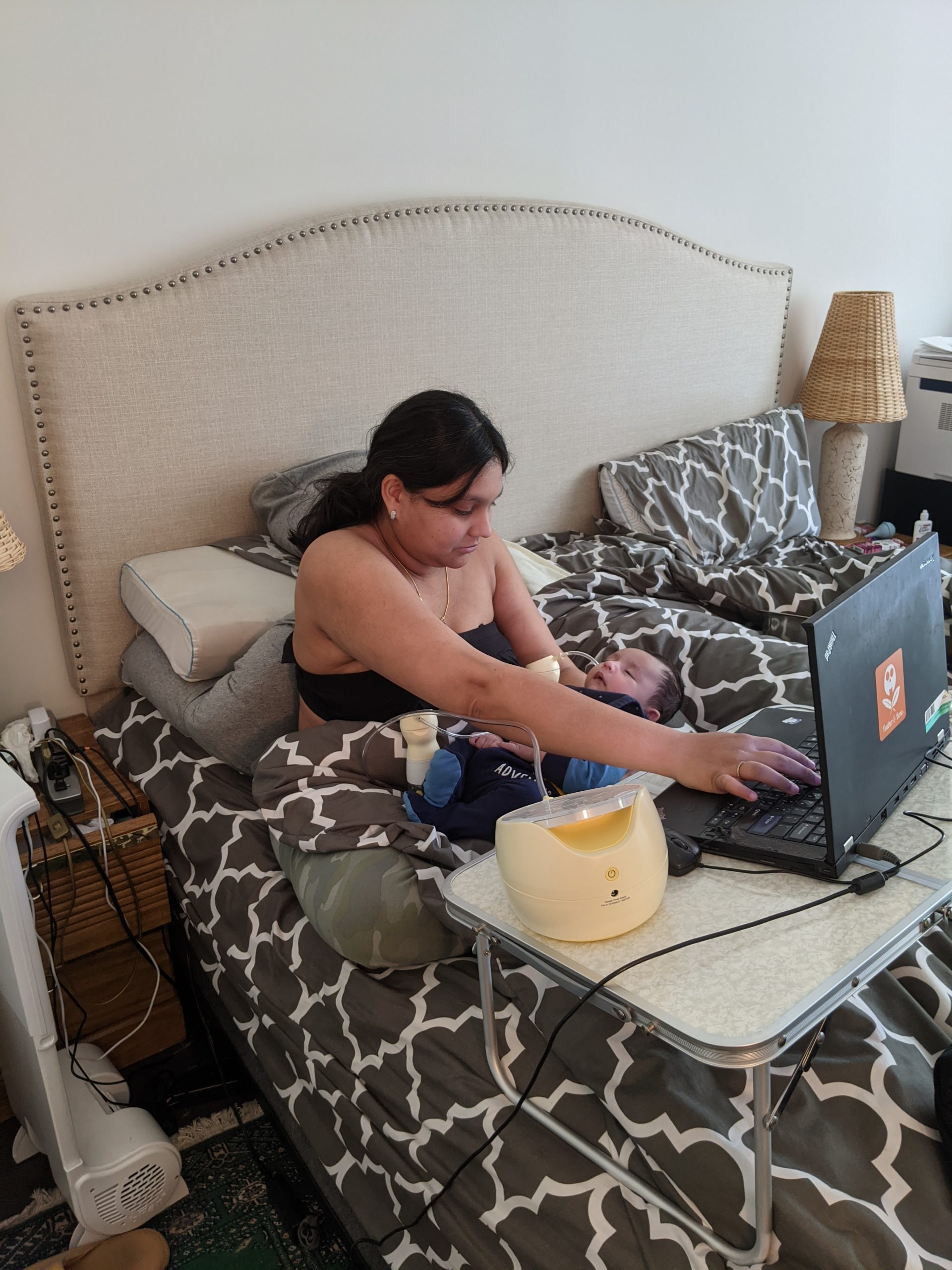“Mirror mirror on the wall. Who’s the fairest of them all?” From a young age, girls are reminded how important looks are. Whether it is a Disney movie, fashionable clothing or even young girls in pageants, we are programmed into thinking looks are not just important, but critical in finding a partner or even jobs. This way of thinking manifests into an intense focus on vanity, resulting spending hundreds, if not thousands of dollars on perfecting the look.
But feeding this need comes at a cost. Not just to our self-esteem, but also to the supply chain. The beauty industry is trying to move to more eco-friendly packaging and products, albeit a good move, the overall consumption has increased, which makes we wonder, are truly making a difference or adding to the problem?
I recently saw Refinery29’s video on child labor practices related to mica mining and Netlix’s documentary Broken, on fake cosmetics, there was a huge bust in California. What I drew as a common theme was that it is our demand that drives these illegal practices. Why do we need lipstick to make us confident? Why do we need to hide our imperfections?
As a young girl myself, I too struggled with this. I was always makeup averse, but would often feel the pressure to give in. As a result of my resistance, I would suffer from low self-esteem, believing that it was my lack of looks and inability to purchase fancy products that prevented me from making friends, being accepted and even finding a boyfriend. As I got older, I grew out of it. But it was a terrible lonely journey. More so, it would be time and age that would fix the problem. And even now, I can’t say I am completely cured. I had been brain washed and didn’t even know it.
How had I been brain washed? The answer was the rhetoric used in beauty marketing. Beauty marketing focuses on the importance of perfect skin or how to get there using products, and indirectly making it seem that our life will be better. Why is there a constant need for perfect?
When launching Feather & Bone’s Face Gems, I was researching how skincare was launched. The first concept of cosmetics was by the Egyptians, who would use oils and creams so that the Gods would consider them worthy. “To smell beautifully was a sign of holiness,” and only perfect-smelling persons would be received by the gods when they died. Meanwhile in China, the use of cosmetics was to differentiate social classes. As time went on, cosmetics and enhancing appearance was used for festivals and special occasions. And then between world war I and Hollywood, everything changed.
What’s interesting is that the use of cosmetics started out as a way to put other people down. For example, the Egyptians felt, the better they smelt the more worthy they would be, or in the case of China, a separation of classes. However, through time this divide has translated into gender. Whilst in olden times men were just as likely to use these cosmetics, in the 1800s, it became where it was just women. And as it became commercialized it started to focus on how use of such products would help women get their men, keep their men or be accepted into society.
To give an example, here are some ads Palmolive used to promote its product.
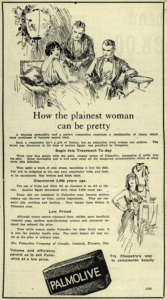
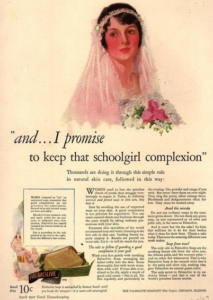
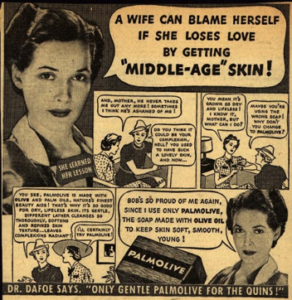
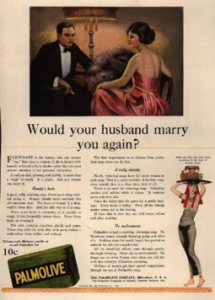
They may have called it an ad but I call it gaslighting. Note: Palmolive wasn’t the only company making ads like these. It was the norm across the industry.
These ads don’t just attack women’s vulnerabilities and fears, but portray how a man would like to see a woman. Which is ironic because when two people marry, they marry for more than looks. They marry for the person, so it would then seem enhancing appearance isn’t that important. There are times when I feel comfortable and happy on how I look, and my husband says why don’t you wear makeup I want to show you off. I know he is half joking, but it shows the mindset that men have.
Beauty marketing spend in 2019 was $14.4BN, and will rise to $15.8BN by 2021. With all that money being spent, it amazes me how the single most important thing about skincare is forgotten: the skin is an organ. Which means like every other organ, your heart, lungs it has functions to perform. And anything we use or do should be in helping it perform these functions successfully so we can lead healthy and happy lives. But somehow between the greed of money and control, the actual needs of a product have been completely forgotten.
As I look at ads in our current day, whilst there has been some change, the underlying message is still an overuse of products versus an understanding of why caring for the skin as an organ goes above the perfect look. And that caring of your skin should be holistic and not a 10 step routine. As a result, we have ended up with thousands of products that are produced and wasted. Child labor for cheaper costs. And a decaying environment flooded with packaging and harmful ingredients.
Whilst the marketing professionals are in the wrong, WE the women, the wallet spenders, also allow it. I am by no means saying you shouldn’t look good or make an effort in looking good. But when looks can’t be separated from worth and appearance, is it worth it?
We need to redefine what looks good, what we see when we look in the mirror. Develop a strong sense of self from a young age so the choices of others don’t affect us. We cannot leave a future where young girls still feeling insecure by their looks. Our future needs to be where looks are judgement free, and we don’t feel embarrassed or pressured to look a certain way.
Marketing and consumption should be purposeful actions and not emotional ones. We now have the knowledge and dollars to change the marketing rhetoric. We can stop buying from companies that continue to promote subtle inequality, and revise our own thoughts on how we love ourselves.



